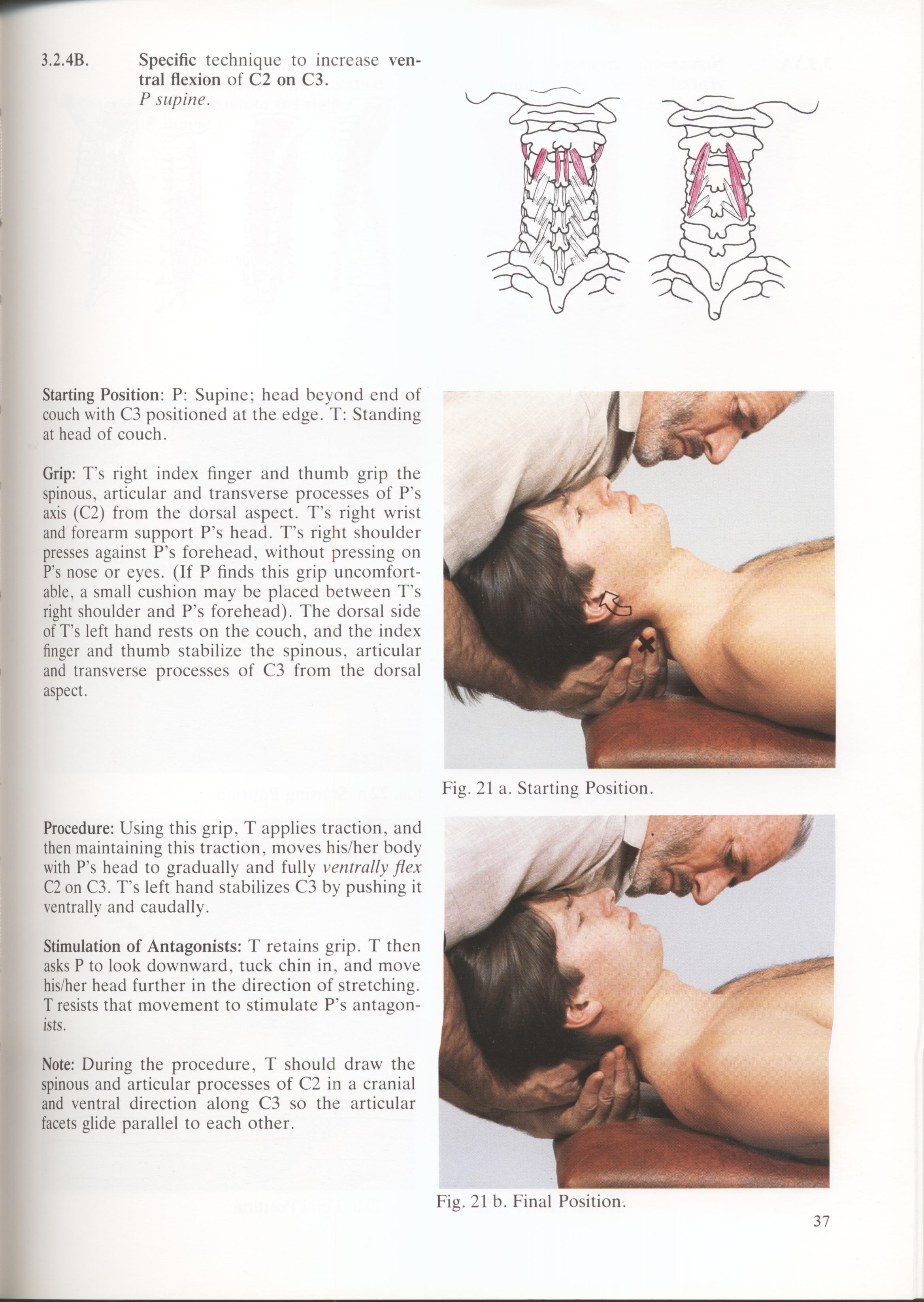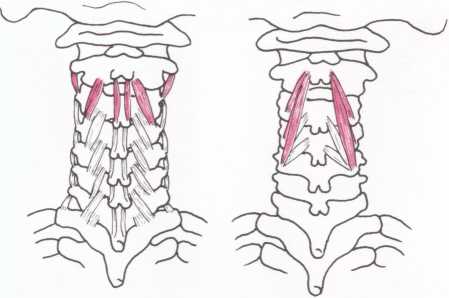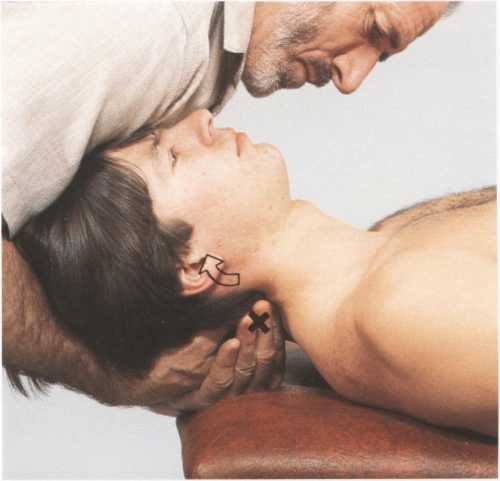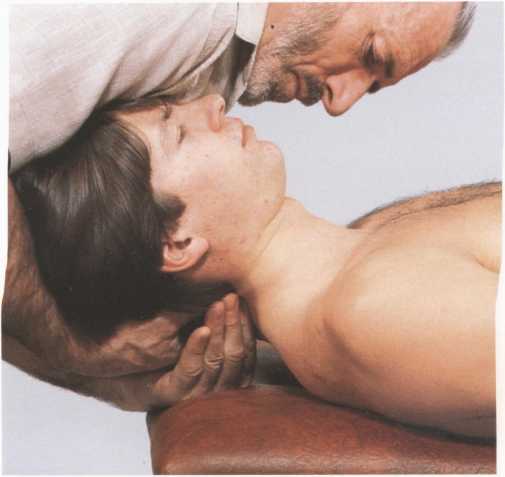37 (498)


3.2.4B. Specific techniąue to increase ven-tral flexion of C2 on C3.
P supine.
►
Starting Position: P: Supine; head beyond end of couch with C3 positioned at the edge. T: Standing at head of couch.
Grip: T's right index finger and thumb grip the spinous, articular and transverse processes of P’s axis (C2) from the dorsal aspect. T’s right wrist and forearm support P’s head. T’s right shoulder presses against P’s forehead, without pressing on P’s nose or eyes. (If P finds this grip uncomfort-able, a smali cushion may be placed between Ts right shoulder and P’s forehead). The dorsal side of T’s left hand rests on the couch, and the index finger and thumb stabilize the spinous, articular and transverse processes of C3 from the dorsal aspect.


Fig. 21 a. Starting Position.
Procedurę: Using this grip, T applies traction, and then maintaining this traction, moves his/her body with P’s head to gradually and fully ventrally flex C2 on C3. T’s left hand stabilizes C3 by pushing it ventrally and caudally.
Stimulation of Antagonists: T retains grip. T then asks P to Iook downward, tuck chin in, and move his/her head further in the direction of stretching. T resists that movement to stimulate P's antagonists.
Notę: During the procedurę, T should draw the spinous and articular processes of C2 in a cranial and ventral direction along C3 so the articular facets glide parallel to each other.
_

Fig. 21 b. Finał Position.
37
Wyszukiwarka
Podobne podstrony:
36 (519) 3.2.4A. Specific technique to increase ven-tral flexion of C2 on C3. P sitting. Starting Po
99 (122) 5.2.2A. Specific techniąue to increase ven-tral flexion of Tl on T2. P supine. Starting Pos
31 (637) 3.2.2A. Specific technique to increase ven-tral flexion of the occiput on the atlas. P sitt
32 (619) 3.2.2B. Specific techniąue to increase ven-tral flexion of the occiput on the atlas. P sitt
33 (623) 3.2.2C. Specific techniąue to increase ven-tral flexion of the occiput on the atlas. P supi
34 (544) 3.2.3A. Specific technique to increase ven-tral flexion of the atlas on the axis. P sitting
35 (522) 3.2.3B. Specific techniąue to increase ven-tral flexion of the atlas on the axis. P supine.
88 (153) 4.2.1. Specific technique to increase ven-tral glide of the mandible (j)rotru-sion). Inabil
42 (439) 3.3.2B. Specific technique to increase ven-tral flexion with rotation and lateral flexion t
43 (434) 3.3.2C. Specific technique to increase ven-tral flexion with rotation and Iateral flexion t
41 (472) 3.3.2A. Specific techniąue to increase ven-tral flexion with rotation and lateral flexion t
90 (158) 4.2.3A. Specific technique to increase ven-tral and caudal movement of the mandible. Slight
58 (289) 3.6.1A. Non-specific techniąue to increase dorsal flexion with rotation and later-al flexio
60 (278) 3.6.2A. Specific technique to increase dorsal flexion with rotation and lateral flex-ion to
61 (265) 3.6.2B. Specific techniąue to increase dorsal flexion with rotation and lateral flex-ion to
62 (263) 3.6.2C. Specific techniąue to increase dorsal flexion with rotation and lateral flex-ion to
63 (253) 3.6.2D. Specific technique to increase dorsal flexion with rotation and lateral flex-ion to
64 (250) 3.7.1A. Non-specific technique to increase dorsal flexion with rotation to the right a
65 (245) 3.7.IB. Non-specific techniąue to increase dorsal flexion with rotation to the right a
więcej podobnych podstron